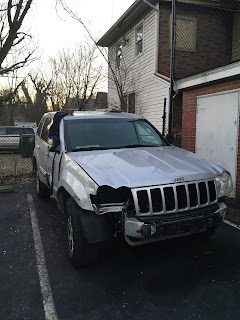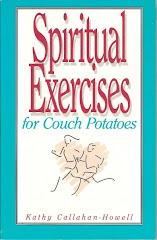On Easter Sunday, 1986, I preached my first sermon at our new church plant. We had a vision for a diverse church, because the neighborhood was beautifully integrated between black and white residents. That first Sunday a couple showed up with their biracial grandchild who had been shunned by their previous church, confirming our vision to welcome all races. The congregation grew slowly, reaching out to neighborhood children and gradually winning over their parents.
Though
never large, we had a healthy congregation in the year 2000, with small groups,
and a lively ministry to children and youth. Then
one day one of our core families told us they would be finding a new church home.
The reasons were multifaceted—at least partially related to me being a female pastor.
Their departure led to other families moving on. Not only did the church shrink, I lost friends and felt as though it was all my fault. I felt
devastated and really wanted to quit.
I
didn’t quit then, partly, because I could not go to another church within my
denomination without moving. We were raising four children, and my husband was
well invested in his work. So I stayed.
The
church became more invested in diversity, gradually becoming majority black. We
had two successive young black men as youth directors, who each did an
excellent job. With both, I hoped they would stay and pursue pastoral ministry.
I would have loved to have handed the church over to either of them. During the
tenure of the second one, we also had several other clergy attending, so a
really healthy group of leaders.
Slowly,
they all left for various reasons. Again I felt deserted and discouraged. But I
still didn’t leave. What else would I do? I still felt called to pastoral
ministry.
In
2017 we rejoiced at the birth of our first grandchild. She lives in Baltimore in
2017, while I remained in Cincinnati. This created a new challenge. I loved
watching my new granddaughter, and later her little brother. If I retired, I
could more freely visit, or even move to their city, but when I searched my
heart, I still loved preaching. I still loved being a pastor. I wasn’t finished
yet.
Then
Covid hit. Like most churches, we had our share of disagreements about how to
handle that reality. Yet somehow, in the midst of it, all, God kept us going.
Despite the financial challenges, God provided, and the last four years, that
pattern has continued. Our bank account rides quite the roller coaster. At one
point, when the balance dipped so low a check might bounce, an outside friend
sent a generous donation. More recently another friend gave us a grant to help.
Attendance
has greatly suffered since Covid. Some weeks only a few fill the pews. Yet
every time I’m ready to quit, someone shows up who needs us. Sometimes it’s a
young person who grew up in the church years ago who resurfaces. Or a mom,
whose child I baptized after his birth, who comes back around, now that he’s
six. Or a young woman, who had to work weekends for years, and finally has
Sundays off to attend again. If the church was closed, where would they go?
Hopefully, they would find another church, but would they make that extra
effort? I know it feels different to show up in a place where you’re still
known.
So I’m
still here. I’m still not sure the church will survive. I still fight
discouragement. I still can’t figure out how to attract new people, because
nothing we’ve tried has seemed to work.
The
pastors who have resigned will get no judgment from me, only empathy. Your
value to God is not dependent on your profession. To those who stay, God sees
you.
I’m no hero, but I’m just trying to be faithful and somehow, every time I want to give up, God shows up in some kind of way. So I’m still here, 37 years later. The same place. The same vision, with revisions. Some of the same people. Definitely the same God, always faithful, always present. And that is why I stay.










